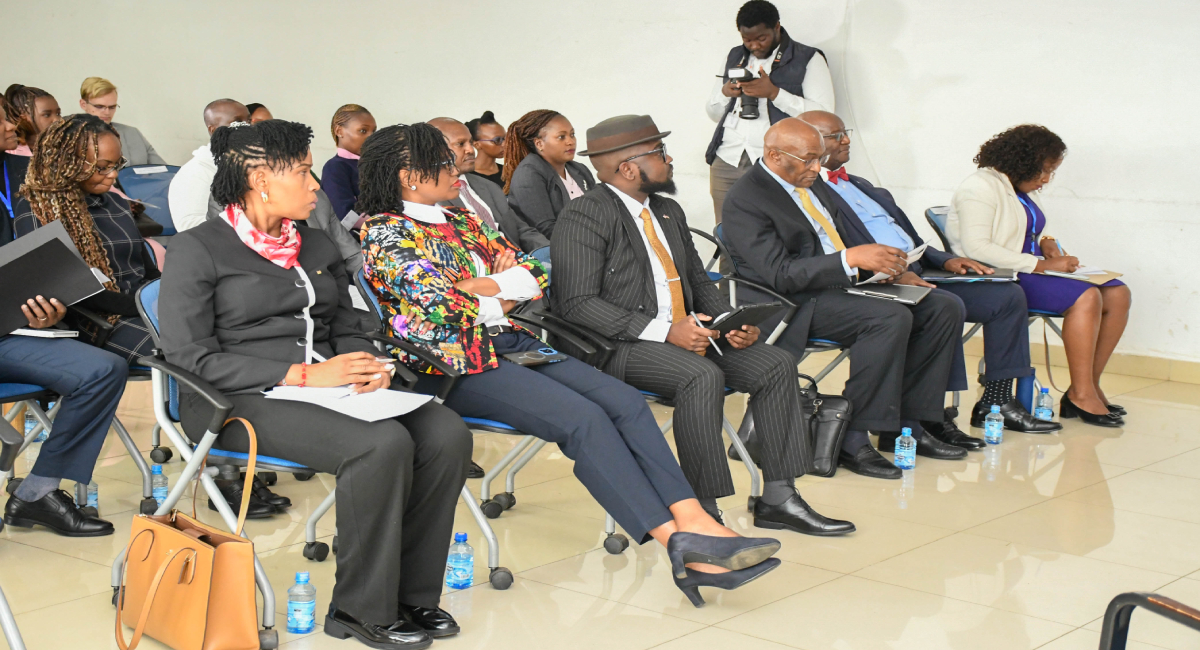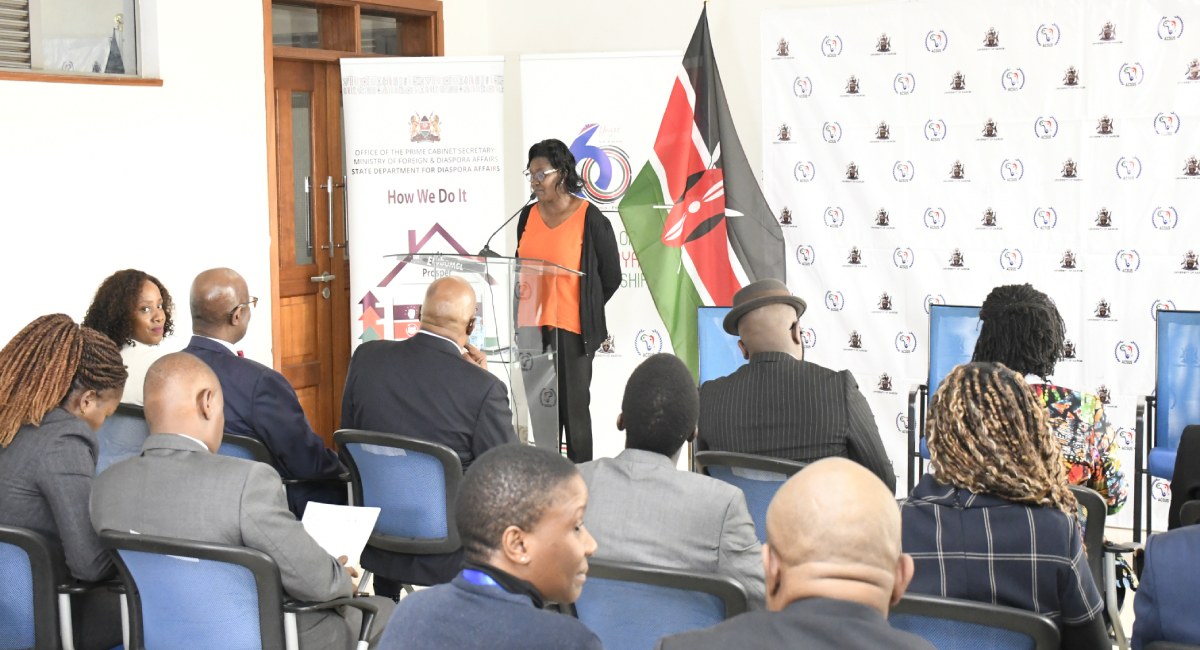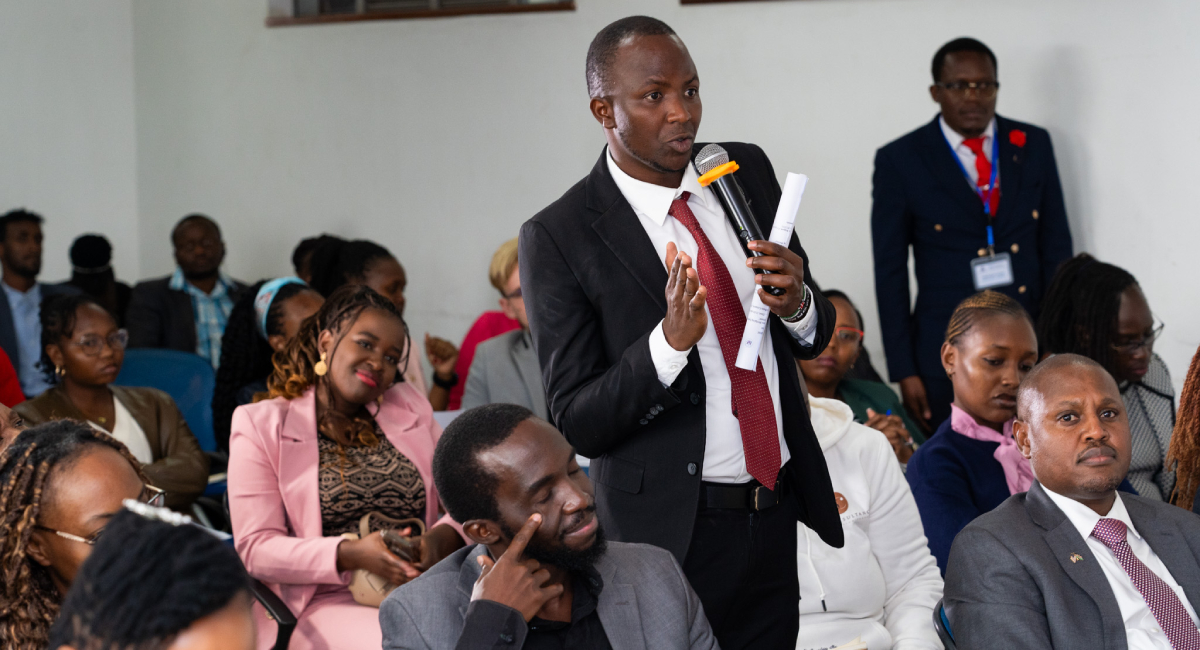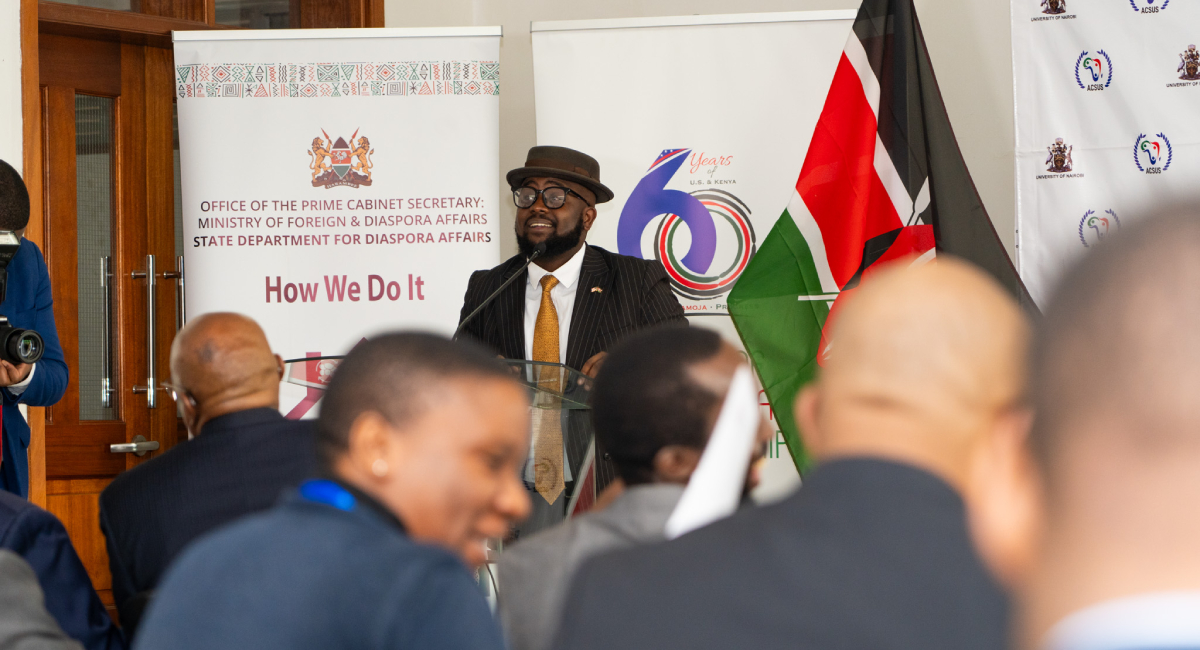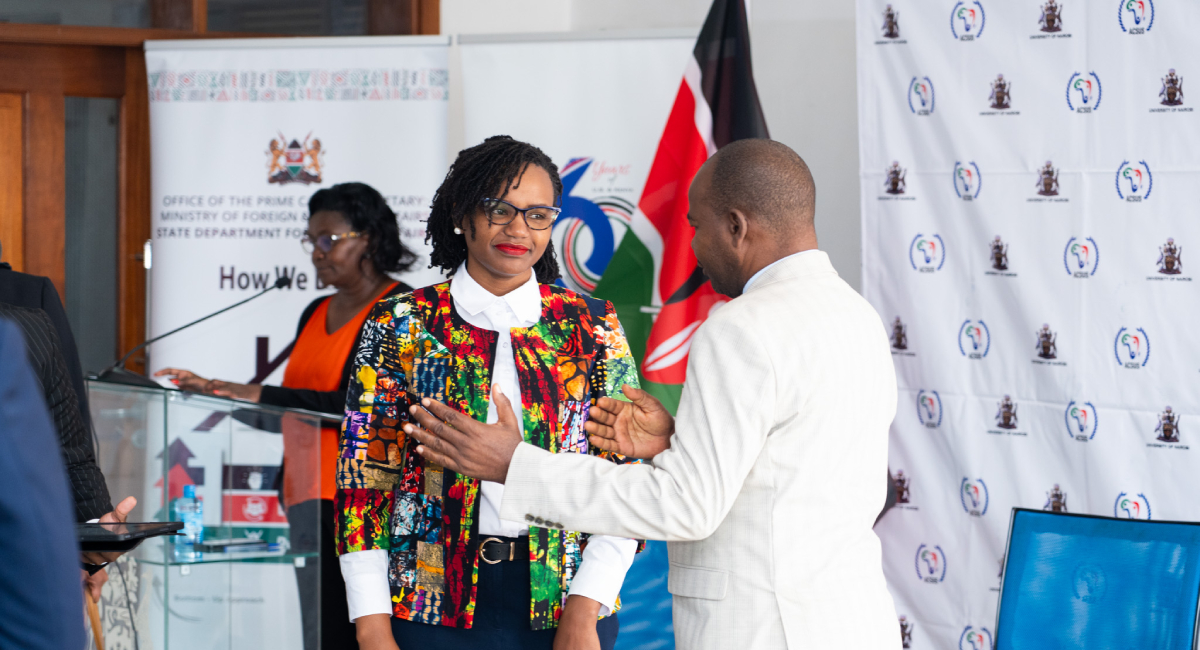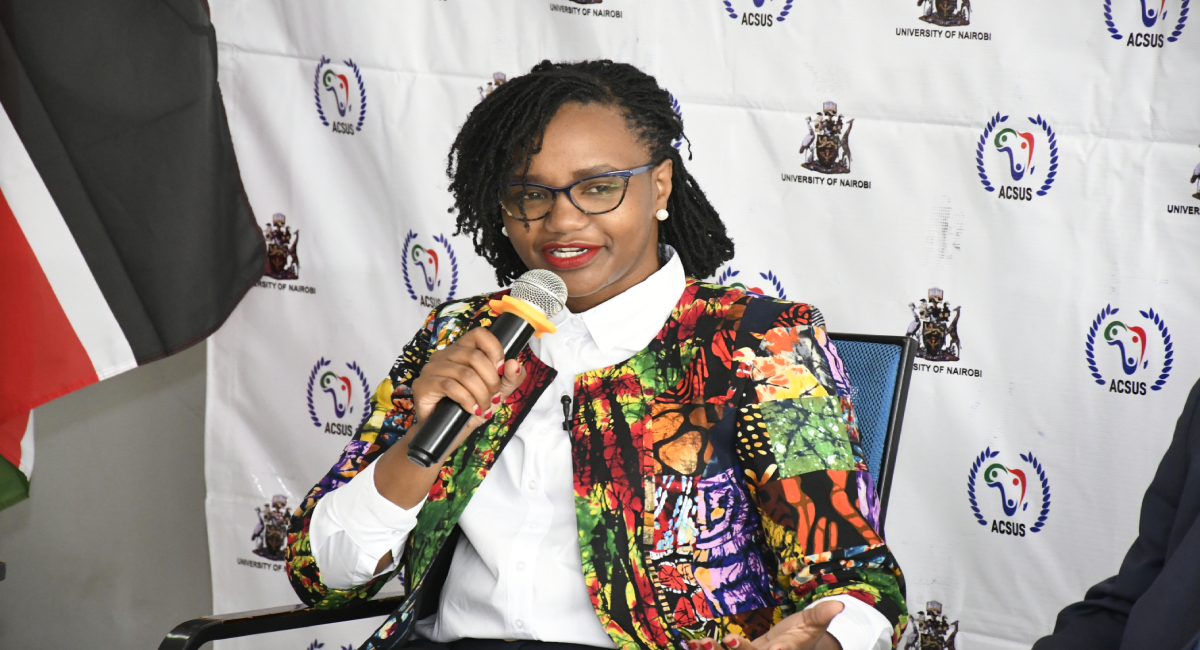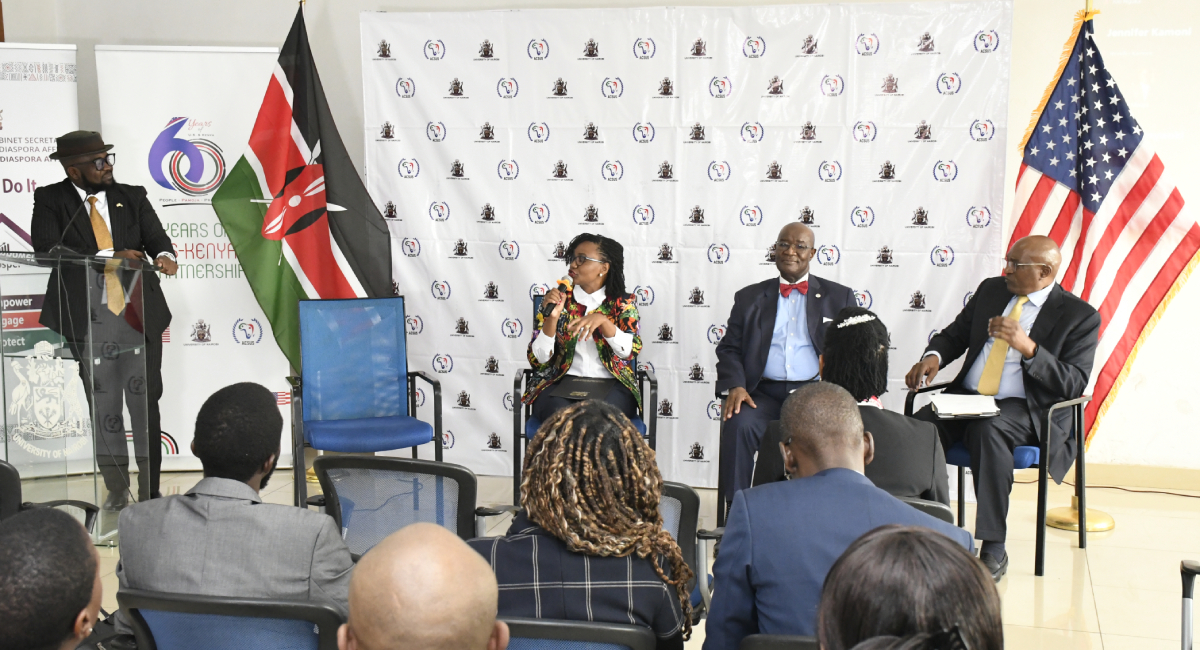As part of the ongoing commemoration of six decades of diplomatic ties between the United States and Kenya, the Africa Center for the Study of the United States (ACSUS) hosted a high-level panel discussion themed “Celebrating 60 Years of U.S.–Kenya Diaspora Relations: Bridging Nations, Enhancing Mutual Growth and Development.”
This timely event brought together distinguished speakers, experts, students, and members of the public to reflect on the vital role diaspora communities play in shaping economic, cultural, and diplomatic ties between Kenya and the United States.
Context and Significance
The Kenyan diaspora in the U.S.—estimated at up to 200,000—has emerged as one of the most educated and dynamic immigrant communities, contributing significantly to healthcare, technology, academia, and other sectors. Their remittances, investments, and knowledge exchange continue to bolster Kenya’s economic and social development. Equally significant is the growing American presence in Kenya, including African Americans who are reconnecting with their roots and investing in sectors like renewable energy, tech, real estate, and education, further enriching bilateral ties.
This discussion acknowledged diaspora communities as influential agents of people-to-people diplomacy, cultural exchange, and shared prosperity. It celebrated their historical contributions while exploring how new opportunities can be harnessed through supportive policies, partnerships, and innovative frameworks.
Key Insights from Speakers and Panelists
Opening the seminar, Prof. Patrick Maluki highlighted that the event offered a unique moment to reflect on the enduring people-to-people connections that enrich U.S.–Kenya ties—underscoring the importance of educational exchanges, cultural diplomacy, and shared innovation.
Engaging panels featured inspiring personal stories and reflections:
- Roseline Njogu emphasized the power of personal narratives in shaping national identity and diplomatic relations, highlighting the critical contributions of Kenyans abroad and the potential of “brain sharing” in today’s global economy.
- Prof. Noah Midamba shared his extensive diaspora journey, including his role in drafting Kenya’s first diaspora policy and mobilizing investment networks that linked American and Kenyan communities since independence.
- Lumas Kendrick Jr., a member of the African American diaspora community in Kenya, spoke about the growing trend of Americans returning to Africa with a genuine commitment to invest and build stronger ties, while also addressing barriers and opportunities for deeper engagement.
Discussions addressed practical issues such as talent mobility, dual citizenship, and the need for structured programs and policies that incentivize diaspora investment and knowledge transfer. Participants reflected on the transformative role of remittances—which accounted for $4.95 billion last year, 50% of which came from the U.S.—and highlighted successful initiatives that bridge economic and cultural gaps.
Key Takeaways and Recommendations
The session concluded with clear calls for action:
- Develop pilot projects that demonstrate the impact of coordinated diaspora engagement.
- Strengthen enabling policy frameworks that attract investment and foster cross-cultural understanding.
- Enhance institutional partnerships that amplify the unique capacities and contributions of both Kenyan and American diaspora communities.
- Recognize the untapped potential of African American communities as partners in trade, innovation, and cultural diplomacy.
